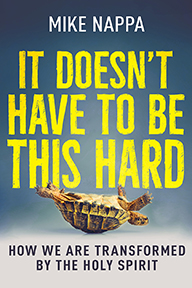An Editorial Team reason for rejection
A few years ago I got an email proposing a book about the life story of some remarkable woman who suffered through illness and poverty etc. before becoming a remarkable woman who still lives in illness and poverty today. Sure, somebody may be interested in reading that kind of tragic life story, but it’s not the kind of book I tend to represent. I sent a rejection.
A month later, I got an email—from a different address—about that same remarkable book about that same remarkable woman. Rejected.
Then, over the course of the next year or so, I got that same book proposal—from supposedly different names and several different email addresses—at least 20 times. Every time my response was an automated rejection. I have to wonder if, after the 13th rejection, that author truly thought I would suddenly come to my senses and rejoice at the opportunity to represent that tired, unpublishable book. Did the author really think the 14th rejection wouldn’t come? Or the 15th? Or the 20th?
Please.
Once a book is rejected, that’s pretty much it for that editor or agent. There are a few exceptions—which we’ll discuss below—but generally speaking, once rejected, always rejected. If you keep re-submitting a book after it’s been rejected, you’ve destroyed your credibility as an author with anyone who has seen your work before.
Additionally, it makes you seem desperate and dense. If you can’t sell this book to me, I don’t want to see it rehashed and re-sent to me again. I want to see if you can come up with something else, something completely new that’ll “wow” me out of complacency toward you. I want to see that you’ve grown since your last proposal, that your writing is getting better, that your market savvy is getting keener, that you really do deserve to be published.
Otherwise we’re just a broken record that plays only one word: Rejection…rejection…rejection…
What You Can Do About It
1. Learn to accept rejection as a natural part of your writing success.
Listen, rejection is nothing to be ashamed of in your writing career. Everybody gets rejected—and I mean everybody. Even J.K. Rowling’s first Harry Potter book was rejected by 12 publishers before Bloomsbury UK finally agreed to give it a chance.
One of my earliest royalty books was rejected a whopping 22 times before a tiny little publisher in Minnesota picked it up—and went on to sell over 100,000 copies of it. In fact, my books have been rejected a few thousand times…and yet I’ve still managed to sell over a million copies of books I authored or coauthored.
So if you get a rejection for a book, don’t waste time trying to change an editor’s mind or foolishly thinking you can “trick” an editor into accepting something he or she previously rejected. Life’s too short, and you’re too good, for that kind of self-defeating behavior. Accept the rejection as another step on your way to success, and move on.
2. Be aware of the exceptions to the “no re-submits” rule—but use them sparingly.
There are rare occasions when it is acceptable to re-submit a manuscript that’s been rejected. Generally speaking, you should never re-submit a rejected proposal. But, just in case the opportunity arises for you, here are the exceptions to this rule:
• The editor or agent suggests revisions and invites you to re-submit after changes have been made. One caveat, though: Never do more than one round of revisions for an editor in this situation. If the editor doesn’t like your book after you’ve tailored it to his or her tastes a first time, it’s unlikely to pass muster the next time.
• The editor or agent says her current load is full but she’d be open to taking another look in six months or something. This one’s easy. Wait six months and re-submit, reminding the editor that she requested the re-submission.
• There’s a change in the editorial staff and you know your book never made it to committee last time. Hey, if the rejecting editor leaves and no one else has seen your book, that means it’s a new proposal for the new editorial team. In this case, simply submit again as if for the first time.
3. Write something new.
So your book got rejected? So what? If you’re as talented and intelligent as I think you are, then simply shrug it off and start on something new. Take charge of your own success by giving yourself a brand new opportunity with a brand new book.
And if that gets rejected too…well, so what? As long as you’re willing to try again, you’re never without opportunities.
Looking for more? Check out these links:










